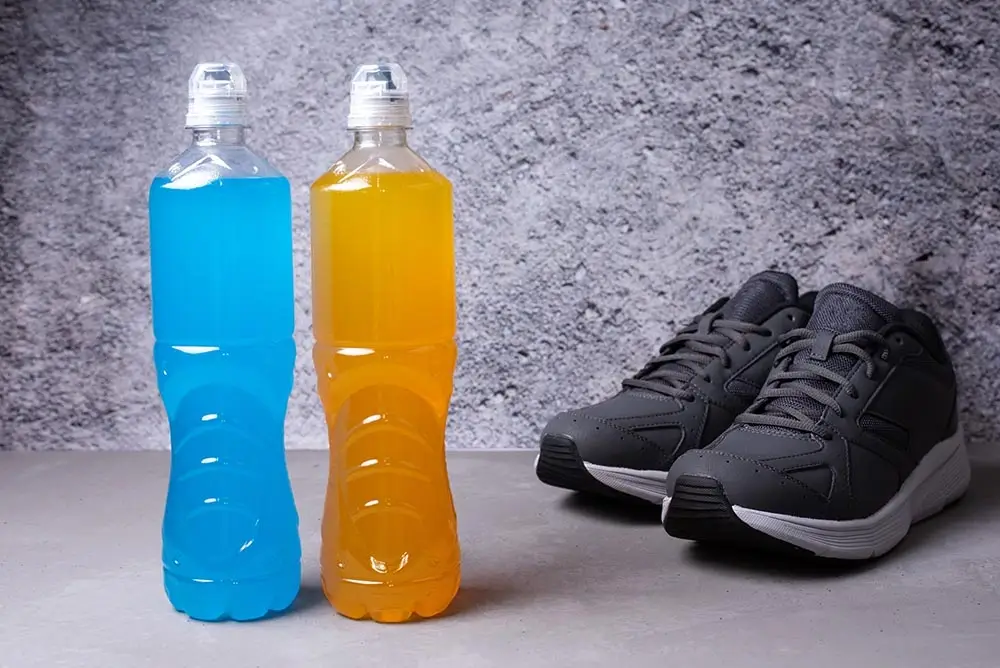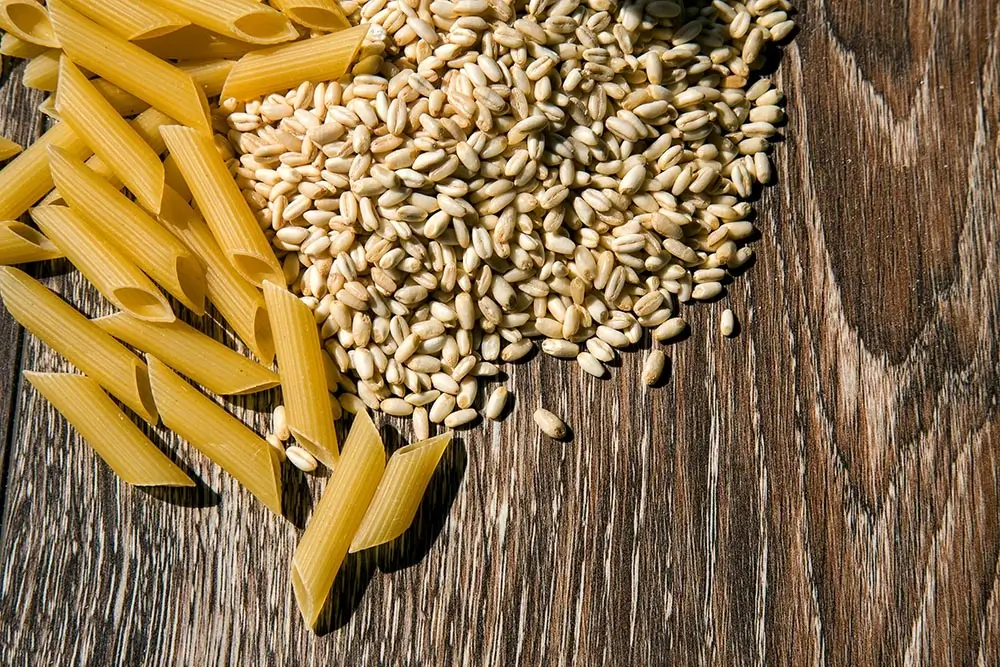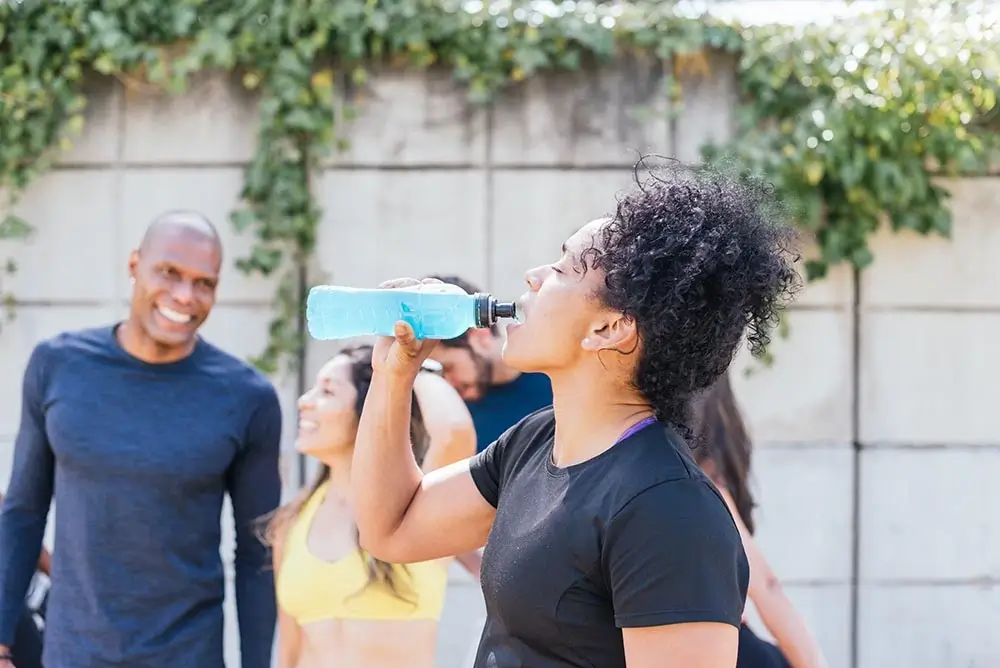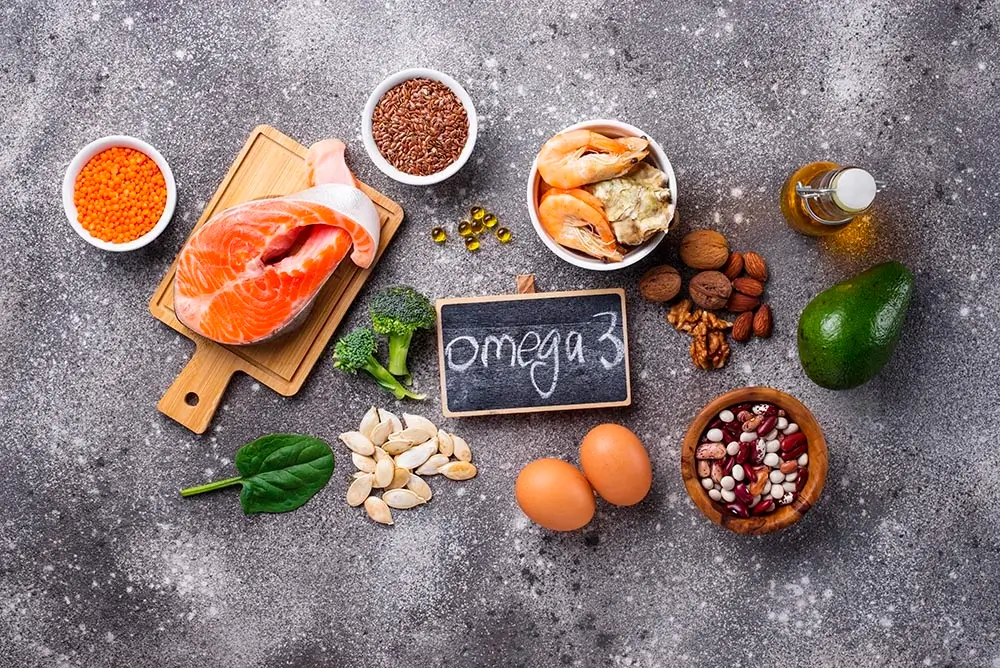Enhance your athletic performance with strategic nutrition: consume anti-inflammatory foods like salmon and tart cherries, time protein intake (1.6-2.2g/kg daily) for ideal recovery, balance electrolytes to prevent cramping, and stay hydrated based on exercise intensity. Add omega-3s for reduced inflammation, fuel with quality carbs pre-workout, and monitor calcium and vitamin D levels for bone health. The right nutrients at the right times can transform your training effectiveness and competitive edge.
Key Takeaways
- Balance protein timing with 20-40g before workouts and focus on a total daily intake of 1.6-2.2g per kg bodyweight for optimal muscle repair.
- Incorporate anti-inflammatory foods like tart cherry juice, fatty fish, and colourful berries to accelerate recovery and reduce muscle soreness.
- Consume balanced meals with quality carbohydrates 1-4 hours before training and maintain a 3:1 carb-to-protein ratio for post-workout nutrition.
- Stay properly hydrated with electrolyte-enhanced beverages during intense workouts to prevent performance decline and muscle cramps.
- Include 1-3g of omega-3 fatty acids daily to improve blood flow, enhance muscle recovery, and boost neuromuscular function.
Fuel Recovery With Anti-Inflammatory Foods

When your muscles scream after an intense workout, what you eat can make all the difference in how quickly you bounce back.
I’ve found that incorporating powerful anti-inflammatory foods strategically accelerates recovery and gets me back to training sooner.
Start with fatty fish like salmon for those essential omega-3s.
Add tart cherry juice to your post-workout routine—its anthocyanins significantly reduce muscle soreness.
Dark leafy greens and colourful berries fight exercise-induced oxidative stress, while turmeric and ginger are my go-to spices for reducing inflammation.
Don’t overlook watermelon (rich in L-citrulline) and pomegranates to improve blood flow to damaged muscles.
Legumes for plant-based athletes deliver recovery proteins and anti-inflammatory compounds without compromise.
Your freedom to perform starts with these recovery powerhouses.
Avoiding processed meats and refined carbohydrates is crucial as these inflammatory foods can counteract your recovery efforts.
Optimise Protein Timing for Muscle Repair

I’ll help you optimise your muscle repair with strategic protein timing that goes beyond the old “anabolic window” myth.
Try consuming 20-40g of protein before your workout to prime your muscles for growth.
Then, focus on getting quality protein within 2-3 hours post-exercise rather than rushing to chug a shake immediately after. Aim for 1.6-2.2 grams of protein per kilogram of bodyweight daily for optimal muscle development.
Don’t forget that a slow-digesting protein like casein before bed can support your overnight recovery when muscle repair continues as you sleep.
Pre-Workout Protein Strategies
Three key factors determine the effectiveness of your pre-workout protein intake: timing, quantity, and source selection.
I recommend consuming 0.2-0.5g of protein per kg of body weight 1-4 hours before training, with the precise timing depending on your workout intensity.
For ideal results:
- Pair protein with carbs to improve glycogen storage and muscle protein synthesis
- Choose lean sources like Greek yoghurt, chicken breast, or whey isolate to prevent digestive discomfort
- Adjust your timing—full meals 3-4 hours out, smaller protein-carb snacks 1-1.5 hours before exercise
- This nutrition approach works best when you avoid eating immediately before exercise, since optimal performance can be compromised by poorly timed pre-workout meals.
Post-Exercise Protein Window
For years, the post-exercise protein window has been misunderstood, with many athletes believing they must consume protein within 30 minutes of finishing their workout.
I’m here to liberate you from this myth—your muscles remain receptive to protein for up to 24-48 hours after training!
While timing isn’t as critical as once thought, I still recommend consuming 20-25g of high-quality protein within two hours post-workout.
Focus on proteins rich in essential amino acids, particularly leucine, which powerfully stimulates muscle repair.
What matters most? Your total daily protein intake and how you distribute it throughout the day.
If you’ve eaten before training, don’t stress about immediate post-workout nutrition. Research shows that pre-exercise protein consumption can be just as effective for muscle growth and strength gains as post-workout intake.
Instead, create a sustainable protein strategy that fits your lifestyle while prioritising quality sources that maximise your body’s recovery potential.
Overnight Recovery Nutrition
Your body’s recovery engine doesn’t stop when you sleep—it actually kicks into high gear. That’s why your pre-bedtime nutrition matters so much. I’ve found that consuming 40g of protein before sleep dramatically boosts overnight muscle repair, especially when using slow-digesting casein proteins. Overlooking protein intake after evening sessions can hinder muscle recovery during the essential sleep phase.
To maximise your overnight recovery:
– Consume 60g of carbs and 20g of protein immediately after evening workouts
– Add another 40g of protein (preferably casein) right before bed
– Choose light, sleep-friendly options like cottage cheese or yoghurt
This strategy creates a steady flow of amino acids throughout the night, fueling your body’s repair processes while you rest.
Balance Electrolytes to Prevent Muscle Cramps

Properly balancing your electrolytes can make the difference between powering through your workout and suffering painful muscle cramps that bring your training to a screeching halt.
I’ve found that sodium, potassium, magnesium, and calcium are your muscles’ best friends.
Don’t just reach for plain water during intense workouts—grab an electrolyte-enhanced beverage instead, especially when sweating heavily. Your muscles will thank you.
Load your diet with potassium-rich foods like bananas and oranges, calcium from dairy or leafy greens, and magnesium from nuts and seeds.
This strategy works particularly well when training in hot conditions or during lengthy sessions.
Incorporate Collagen-Boosting Nutrients for Joint Health

While many athletes focus exclusively on protein for muscle building, joint health often remains an overlooked component of peak performance.
Collagen, which makes up 30% of your body’s protein, is vital for tendons, ligaments, and cartilage—essentially your body’s structural framework.
I recommend incorporating these collagen-boosting nutrients into your daily regimen:
- Consume protein-rich foods like lean meats, fish, and vitamin C from citrus fruits to activate collagen synthesis.
- Add zinc-rich foods such as oysters and pumpkin seeds that help maintain existing collagen.
- Include omega-3 sources like salmon to support anti-inflammatory processes that protect joint health.
For maximum benefit, consider supplementing with 15g of collagen peptides daily, especially near workout times when absorption is improved.
Your joints will thank you, and you’ll likely notice enhanced recovery and performance over time.
Prioritise Antioxidant-Rich Foods to Combat Exercise Stress

When intense exercise triggers oxidative stress in your body, antioxidants become your primary defence system against cellular damage.
I’ve found that incorporating beetroot juice before workouts improves blood flow and oxygen utilisation, while tart cherry juice reduces inflammatory markers and speeds recovery afterwards.
Don’t overlook the power of berries—blueberries and raspberries contain anthocyanins that boost endurance and fight inflammation.
I recommend dark leafy greens, nuts like almonds and walnuts, and green tea with its fatigue-fighting catechins for daily protection.
Strategic Carb Loading for Sustained Energy Levels

To maximise your athletic performance, strategic carbohydrate loading can make the difference between hitting the wall and powering through to the finish line.
I recommend starting your carb-loading regimen 48 hours before competition, aiming for about 10g of carbs per kilogram of body weight.
Your carb-loading strategy should include:
- Complex carbohydrates like whole grains and pasta for sustained energy
- Fresh fruits and vegetables to maintain nutrient balance
- Strategic snacks like dried fruits and nuts to keep glycogen levels topped up
Don’t rely on simple sugars—focus on quality carbs that won’t cause digestive issues.
Customise Hydration Based on Activity Intensity

Staying properly hydrated during exercise isn’t a one-size-fits-all equation—your body’s fluid needs change dramatically based on how hard you’re pushing yourself.
Simple water might suffice for low-intensity workouts, while moderate efforts demand about 17 ounces two hours beforehand.
When you’re pushing hard, especially in the heat, you’ll need a more aggressive approach, as you can lose up to 2.5 litres per hour.
Don’t underestimate the impact of dehydration—even mild fluid deficits can reduce strength, reaction time, and mental focus.
At 4% body weight loss, your performance can drop by 9-12%.
Monitor your hydration status through urine colour (aim for pale yellow) and customise your strategy based on your personal response.
Leverage Omega-3s for Reduced Joint Inflammation

I’ll share a transformative secret about omega-3s that extends far beyond joint protection. These powerful fatty acids also improve blood flow and muscle glucose uptake to boost overall performance.
For maximum benefits, aim for 1-3 grams of EPA/DHA daily from rich sources like salmon, mackerel, sardines, or quality supplements if you’re plant-based.
I’ve found that strategically timing your intake around training sessions can significantly amplify tissue repair and reduce post-exercise inflammation markers.
Benefits Beyond Joint Health
While most athletes associate omega-3s solely with joint relief, these powerful fatty acids deliver a far more comprehensive impact throughout the body.
They’re your secret weapon for total performance improvement, not just pain management.
I’ve seen remarkable results when athletes properly integrate omega-3s into their nutrition strategy:
- Accelerates muscle recovery by reducing inflammation and boosting protein synthesis, meaning less downtime between intense training sessions
- Improves cardiovascular efficiency through better oxygen delivery and blood flow, giving you that extra push during endurance activities
- Enhances neuromuscular function and cognitive performance, sharpening your reaction time and focus when it matters most
Don’t limit these powerhouse nutrients to just joint health.
Accept their full spectrum of benefits to reveal your body’s true potential and gain an edge over the competition.
Top Food Sources
Athletes seeking joint relief need to prioritise omega-3-rich foods in their daily nutrition. I recommend making fatty fish like salmon, mackerel, and sardines your go-to proteins—they’re packed with EPA and DHA that combat inflammation directly.
Don’t eat fish? No problem. Grab a handful of walnuts, sprinkle chia seeds on your breakfast, or drizzle flaxseed oil on your salad for ALA omega-3s. Remember, you’ll need more plant sources since your body converts them less efficiently.
For maximum results, I suggest incorporating omega-3s both before and after your workout. Before training, they prime your body to resist inflammation; afterwards, they accelerate recovery.
If you’re training intensely, consider supplements to reach the 2-4 grams daily that competitive athletes often need.
Proper Dosage Timing
When consuming omega-3s, timing can dramatically amplify their joint-protective benefits. I’ve found that taking supplements with meals containing healthy fats significantly boosts absorption, giving your body maximum anti-inflammatory power.
Consistency matters more than perfect timing—your body needs steady omega-3 levels to fight inflammation effectively.
For peak athletic performance and joint protection, try these timing strategies:
- Take your omega-3s immediately before or with a fat-containing meal to maximise bioavailability
- Consider splitting your daily dose (especially at higher amounts of 2-4g) across multiple meals
- Align supplementation with your training schedule—before or after workouts can both provide benefits
The key isn’t just what you take but when and how.
Maintain this consistent timing routine; you’ll notice improved recovery and reduced joint inflammation.
Time Nutrient Intake Around Training Windows

Improving your performance as an athlete requires strategic nutrient intake timing around your training sessions.
I’ve found that fueling 1-4 hours before a workout with digestible carbs and moderate protein gives you the energy to push harder while preventing muscle breakdown.
Small carb feedings with electrolytes during workouts exceeding 60 minutes will maintain your glucose levels and prevent the dreaded performance crash.
Don’t worry about rushing your post-workout meal—the anabolic window isn’t as narrow as once thought.
Still, consuming a 3:1 or 4:1 carb-to-protein ratio within a few hours supports ideal recovery.
Between sessions, eat every 2-3 hours to maintain steady energy and improve recovery.
Your body’s a high-performance machine—fuel it consistently to reveal your full potential.
Monitor Vitamin D and Calcium for Bone Strength

While many athletes focus on macronutrients and training intensity, bone health is the foundation of your athletic performance.
I’ve seen countless talented athletes sidelined by stress fractures that could’ve been prevented with proper nutrient monitoring.
Your body needs both calcium and vitamin D working together—one can’t function effectively without the other. This dynamic duo becomes especially vital if you’re under 25 and still building peak bone mass.
- Prioritise fatty fish, fortified dairy, and eggs for vitamin D, especially if you train indoors
- Consume calcium sources like dairy, leafy greens, and almonds in 500mg doses for maximum absorption
- Get your 25(OH)D levels tested if you’re at northern latitudes or train primarily indoors
Frequently Asked Questions
How Do Food Allergies Affect Athletic Nutrition Planning?
With food allergies, I’ll help you navigate nutritional challenges by finding alternative protein sources, managing inflammation, optimising digestion, and creating strategic meal plans that fuel your performance without triggering reactions.
Can Fasting Improve Athletic Performance During Competition?
I don’t recommend fasting during competition. While it may benefit body composition long-term, it’ll likely impair your performance when it matters most through decreased energy availability and potential dehydration.
Should Athletes Take Pre-Workout Supplements Before Training?
Like a rocket needs fuel, your workout needs a boost. I recommend pre-workouts for intense training but know your body’s limits. Quality ingredients matter—don’t sacrifice long-term health for temporary gains.
How Does Alcohol Consumption Impact Athletic Recovery?
I’ll tell you straight—alcohol wreaks havoc on your recovery. It slows healing, reduces muscle protein synthesis, disrupts hormones, and dehydrates you. Choose recovery over drinks if you’re serious about performance.
Are Plant-Based Diets Sufficient for High-Performance Athletes?
I’ve seen plant-based diets fuel elite athletes perfectly. You must balance nutrients carefully, ensuring adequate protein, B12, iron, and omega-3s. When done right, they’re absolutely viable for peak performance!
Final Thoughts
I’ve walked the path from average to elite, and I’m telling you—these nutrition strategies aren’t optional if you’re serious about performance. What’s the one thing separating you from your potential? Often, it’s what’s on your plate. Start with just one of these approaches tomorrow. I promise you’ll feel the difference. The question isn’t whether these strategies work—how quickly you’ll implement them to transform your athletic future.
